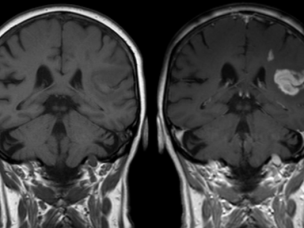Uncategorized
Clinical Assessment of PAD on the Primary Care Spectrum
By the year 2050 over 19 million will have Peripheral Arterial Disease. Watch this webinar from the American Heart Association on the clinical assessment of PAD presented by Dr. Eileen Walsh from the College of Nursing at the University of Toledo.
Dr. Meena Singh On Treating Eczema In Patients of Color
Dr. Meena Singh is a Harvard Medical School graduate, board-certified dermatologist and dermatologic surgeon in Kansas City who specializes in hair transplant and ethnic skin. She is the Medical Director for KMC Hair Center whose multiple locations include Shawnee, Leawood, and Kansas City. We recently sat down with Dr. Singh to discuss eczema in darker...
Understanding Health Disparities in Prostate Cancer
There are stark differences in prostate cancer incidence and mortality rate among certain races, primarily between the African-Americans and their European-American counterparts. While the latter has mostly been attributed to lower socioeconomic positions; access to health care, racial and ethnic discrimination, language and cultural barriers and delayed disease diagnosis in these populations, the former has...
Afrocentric Hair Transplant with PRP by Dr William Yates
Dr. Yates talks with one of his patients with excellent results at 10 months. The patient had an FUE hair transplant with PRP (Platelet Rich Plasma) Therapy at the time of surgery. They discuss FUE hair transplantation, done correctly, works well for every hair type – including Afrocentric hair.
Progressive MS Cognitive Decline Isn't As Inevitable As Previously Believed
A new study is claiming that neurological decline in patients with multiple sclerosis (MS) may not be as inevitable as previously thought. The study, “A longitudinal study of cognitive function in multiple sclerosis: is decline inevitable?,” was published in the Journal of Neurology. For many years, statistics have implied that some kind of cognitive impairment affects...
Minorities with Multiple Sclerosis Have Higher Antibody-Secreting Cells Than White Patients
Latinx and Black multiple sclerosis (MS) patients have a higher number of disease-associated antibody-secreting cells in their blood compared to those who identify as Caucasian, a new U.S. study reports. This new evidence may kickstart a myriad of unique treatments for MS based on genetic and ethnic differences. The study, “Black African and Latino/a identity...
Despite long-held beliefs, new study says obesity, heart disease and diabetes may be contagious
A new bombshell research paper conducted by a team of fellows in CIFAR’s Humans and the Microbiome is reporting that long known non-communicable diseases including heart disease, cancer and lung disease possibly can, in fact, be passed along to others through airborne contact. “If our hypothesis is proven correct, it will rewrite the entire book...
Minorities More Likely To Participate In Clinical Trials If Recommended by A Minority Clinician
According to the National Institute of Health (NIH), fewer than 10% of patients enrolled in clinical trials are minorities. This begs the question whether clinical trials data and research are truly relevant. Dr. Consuelo Hopkins Wilkins is a researcher at Washington University School of Medicine in St. Louis who experiences challenges recruiting older African Americans...
Report: Social Determinants Must Be Addressed to Advance Health Equity
Although the overall rate of people dying from cancer in the United States has dropped 27% in the past 25 years, some disadvantaged populations didn’t see the same decline. “We’re making progress against cancer in the United States, but some groups aren’t benefitting as much as others,” said Kassandra Alcaraz, PhD, MPH. “Health is affected...
More Medical News














